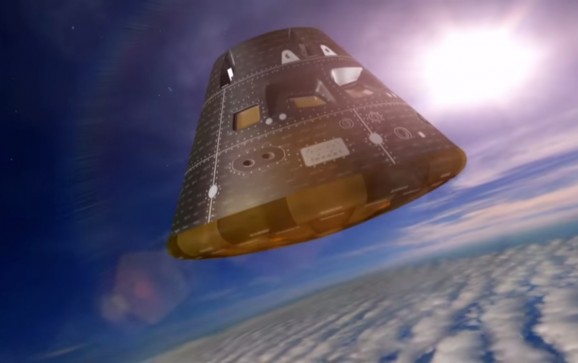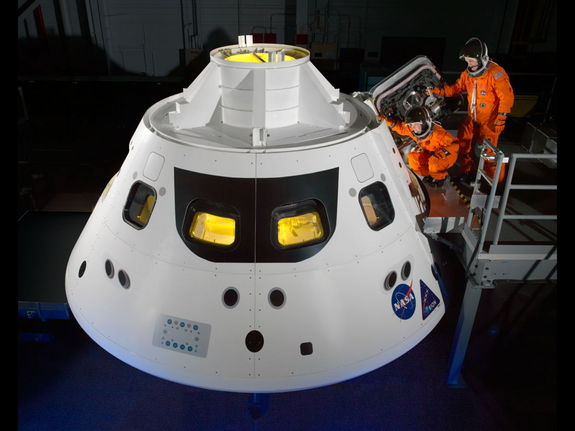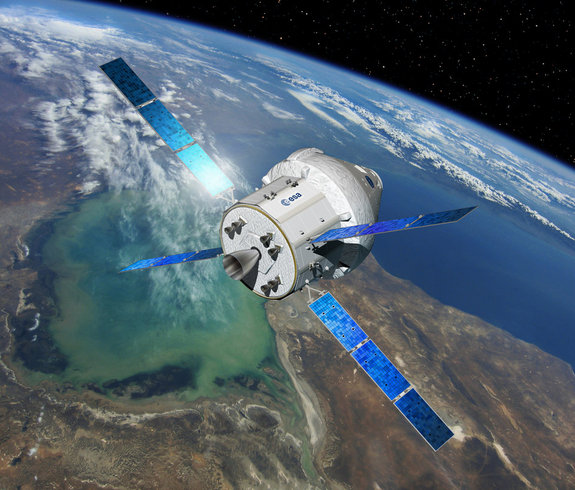NASA Prepares For Orion’s First Flight Test, Here’s What You Need To Know
This article is more than 2 years old
 When President Obama officially canceled the Constellation Program, one era of U.S. spaceflight ended and another one began—both Obama and NASA made a case for using private companies for the transport of humans and cargo into space. He also assured citizens that the space agency wasn’t about to retire entirely from the game, and dangled the carrot of Orion—their next manned spacecraft intended to bring humans beyond low-Earth orbit. Orion is “Apollo on steroids,” and NASA is currently preparing for its first test flight.
When President Obama officially canceled the Constellation Program, one era of U.S. spaceflight ended and another one began—both Obama and NASA made a case for using private companies for the transport of humans and cargo into space. He also assured citizens that the space agency wasn’t about to retire entirely from the game, and dangled the carrot of Orion—their next manned spacecraft intended to bring humans beyond low-Earth orbit. Orion is “Apollo on steroids,” and NASA is currently preparing for its first test flight.
This test flight would have been a big deal no matter what, but after last week’s catastrophes, the stakes feel higher than ever.
 In about a month, on December 4, Orion, built by Lockheed Martin and commissioned by NASA, is scheduled to make its first test flight, Exploration Flight Test 1 (EFT-1). The craft will launch from the Kennedy Space Center in Florida atop a United Launch Alliance Delta IV heavy rocket. It will then decouple and jettison the launch-abort system, which is designed to help a crewed capsule avert danger—that system will be specifically tested in a future flight. It will orbit Earth twice, and the second time around use a rocket engine boost to propel it as far as 3,600 miles from Earth, about 14 times as far away as the ISS. Eventually it will reenter Earth’s atmosphere and land in the Pacific Ocean, at which point Sandra Bullock will emerge and swim to shore. Oh wait, that’s the next test.
In about a month, on December 4, Orion, built by Lockheed Martin and commissioned by NASA, is scheduled to make its first test flight, Exploration Flight Test 1 (EFT-1). The craft will launch from the Kennedy Space Center in Florida atop a United Launch Alliance Delta IV heavy rocket. It will then decouple and jettison the launch-abort system, which is designed to help a crewed capsule avert danger—that system will be specifically tested in a future flight. It will orbit Earth twice, and the second time around use a rocket engine boost to propel it as far as 3,600 miles from Earth, about 14 times as far away as the ISS. Eventually it will reenter Earth’s atmosphere and land in the Pacific Ocean, at which point Sandra Bullock will emerge and swim to shore. Oh wait, that’s the next test.
 The 4.5-hour trial run is designed to gauge the effectiveness of Orion’s heat shield (the largest ever built, designed to withstand temperatures of 4,000 degree Fahrenheit), radiation sensors, parachute, and other systems. It should also help engineers and scientists determine what systems need additional work, and which parts of future flights might be the riskiest. Certainly, last week’s events contribute to the focus on vigilance, though NASA spokespeople say those explosions haven’t altered the game plan when it comes to Orion.
The 4.5-hour trial run is designed to gauge the effectiveness of Orion’s heat shield (the largest ever built, designed to withstand temperatures of 4,000 degree Fahrenheit), radiation sensors, parachute, and other systems. It should also help engineers and scientists determine what systems need additional work, and which parts of future flights might be the riskiest. Certainly, last week’s events contribute to the focus on vigilance, though NASA spokespeople say those explosions haven’t altered the game plan when it comes to Orion.
If everything works as planned, NASA will be able to reuse the capsule after retrieving it from the ocean. And maybe someday, it will bring people to Mars. The question is whether Elon Musk and SpaceX will have gotten there first.












